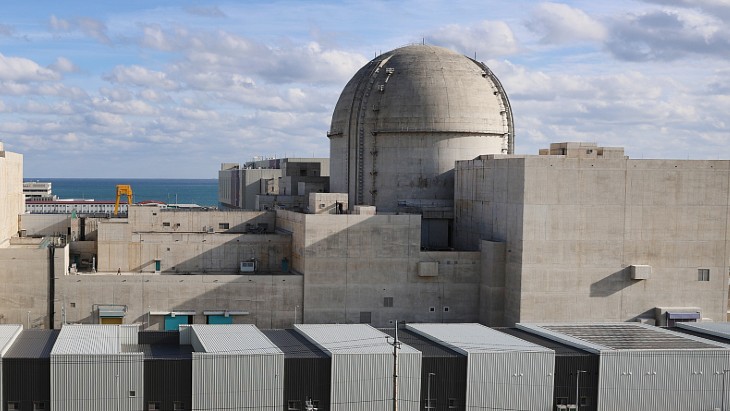A Conservative minister has been appointed to be responsible for nuclear energy at the UK's Department for Energy and Climate Change (DECC), which will be headed by a Liberal Democrat secretary of state.
Following elections earlier this month, the UK formed its first coalition government in 65 years. The Conservatives, headed by David Cameron, narrowly missed gaining the majority of votes needed for them to form a government. However, a coalition deal was reached with the Liberal Democrats, led by Nick Clegg. Cameron is now prime minister and Clegg is deputy prime minister.
According to the coalition deal reached by the two parties, they had "agreed a process that will allow Liberal Democrats to maintain their opposition to nuclear power while permitting the government to bring forward the national planning statement for ratification by parliament so that new nuclear construction becomes possible."
Liberal Democrat Chris Huhne was appointed Secretary of State for Energy and Climate Change. As the head of DECC, he will be responsible for the department’s strategy and budgets; energy market reform; carbon pricing; energy security; and devolved administrations.
Huhne has made many statements against nuclear energy in the past, and now in government has followed the line that new nuclear is acceptable provided it receives no public money. However, responsibility for new nuclear build has gone to Conservative minister Charles Hendry, who will become the Minister of State for Energy. He will also be responsible for renewable energy; fossil fuels; planning reform and consents; regulation and competition in the energy sector as well as all nuclear matters including non-proliferation, civil plutonium strategy and waste management.
DECC also announced that Conservative minister Greg Barker, as Minister of State for Climate Change, will be responsible for climate change policies; energy efficiency and a green investment bank.
Despite the Liberal Democrats' anti-nuclear stance, the coalition agreement negotiated between the Conservatives and Lib Dems brought relief to nuclear industry observers by essentially continuing the unfinished work of the Labour government.
Public support grows
A new poll conducted by YouGov and commissioned by EDF Energy has found that public opposition to nuclear energy in the UK has softened over the past three years. The survey of 4300 adults found that the overall "favourability rating" of nuclear power among those surveyed had quadrupled from +4 to +16 between 2007 and 2010.
Among respondents who identified themselves as Lib Dem supporters, some 58% agreed that "nuclear energy has disadvantages, but the country needs it to be part of the energy balance." Furthermore, only 32% of Lib Dem supporters said they opposed building new nuclear power reactors, while 47% said they supported their construction.
Chief executive of the UK Nuclear Industry Association Keith Parker said, "It comes as no surprise to us that the benefits of nuclear are being increasingly well understood. As we drive to secure our energy supplies whilst decarbonising our economy, a balanced energy mix including substantial supplies of nuclear will become ever more essential."
Energy Bill
Queen Elizabeth II today opened a new session of parliament. In her speech setting out the governments plans to the House of Lords and House of Commons, she confirmed that legislation will be introduced to improve energy efficiency in UK homes and businesses, to promote low carbon energy production, and to secure the country's energy supplies. The government will also seek global cooperation to combat climate change.
In a statement DECC said that the Energy Bill 2010 "is to provide a step change in the provision of energy efficiency measures to homes and businesses, and to put in place a framework to deliver a future with secure, low carbon energy supplies and fair competition in the energy markets." It will likely involve new regulation of emissions from coal-fired power generation and perhaps also the introduction of a floor price for carbon dioxide emissions, although this was not mentioned.
Huhne commented: "The Queen's Speech and last week’s program of government make clear that energy security and taking real action to tackle climate change aren’t add-on extras for this new government, but are vital to our national interest."
Researched and written
by World Nuclear News




_72306.jpg)


_49562.jpg)





